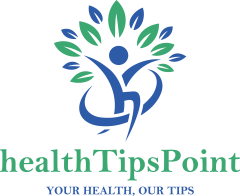Now a days, it’s easy to get caught up in the hustle and bustle and forget about our health. However, maintaining good health is the key to a happier, longer life. Here are the top 10 health tips that can help you lead a more fulfilling life.
Comparison Chart: Top 10 Health Tips for a Rich Life
| Health Tip | Description | Benefits |
|---|---|---|
| Eat a Balanced Diet | Consume a mix from all food groups. Include whole grains, lean proteins, healthy fats, and fruits & vegetables. | Ensures intake of essential nutrients; supports overall health. |
| Stay Hydrated | Drink at least 8 glasses of water daily. | Aids digestion, circulation, and nutrient absorption; supports overall bodily functions. |
| Exercise Regularly | Engage in at least 30 minutes of moderate exercise most days. | Enhances physical fitness; boosts mood and energy levels. |
| Prioritize Sleep | Aim for 7-9 hours of sleep nightly. | Helps body repair and rejuvenate; improves concentration, productivity, and mood. |
| Manage Stress | Adopt practices like meditation, yoga, or deep-breathing exercises. | Reduces risk of health issues related to chronic stress; promotes mental well-being. |
| Limit Alcohol & Avoid Smoking | Drink in moderation and consider quitting smoking. | Reduces risk of health complications; supports long-term health. |
| Regular Check-ups | Schedule consistent visits to your doctor. | Early detection of potential health issues; ensures better outcomes. |
| Maintain a Healthy Weight | Adopt a balanced diet and exercise routine. | Reduces risk of health problems associated with weight; supports overall well-being. |
| Stay Socially Connected | Engage in social activities, spend time with loved ones, or volunteer. | Boosts mood and mental well-being; reduces feelings of isolation. |
| Never Stop Learning | Read, solve puzzles, or pick up a new skill. | Prevents cognitive decline; keeps the mind active and sharp. |
This chart provides a concise overview of the top 10 health tips, offering a clear understanding of each tip’s essence and its benefits.
- Eat a Balanced Diet: Consuming a variety of foods from all food groups ensures that you get all the essential nutrients. Incorporate whole grains, lean proteins, healthy fats, and plenty of fruits and vegetables into your daily diet.
- Stay Hydrated: Drinking enough water is crucial for your body’s overall function. Aim for at least 8 glasses a day to keep your body hydrated and to aid in digestion, circulation, and absorption of nutrients.
- Exercise Regularly: Physical activity not only keeps your body fit but also boosts your mood. Aim for at least 30 minutes of moderate exercise most days of the week.
- Prioritize Sleep: Aim for 7-9 hours of sleep per night. Sleep is when your body repairs and rejuvenates itself. A good night’s sleep can improve concentration, productivity, and mood.
- Manage Stress: Chronic stress can lead to various health issues. Find healthy ways to cope, such as meditation, yoga, or deep-breathing exercises.
- Limit Alcohol and Avoid Smoking: Excessive alcohol consumption and smoking can lead to various health complications. If you drink, do so in moderation, and consider quitting smoking for a healthier life.
- Regular Check-ups: Visit your doctor for regular check-ups to catch potential health issues early. Early detection can lead to better outcomes.
- Maintain a Healthy Weight: Being overweight or underweight can lead to various health problems. Find a balanced diet and exercise routine that helps you maintain a healthy weight.
- Stay Socially Connected: Engaging in social activities can boost your mood and mental well-being. Spend time with loved ones, join clubs, or volunteer in your community.
- Never Stop Learning: Keeping your brain active can help prevent cognitive decline. Read, solve puzzles, or learn a new skill to keep your mind sharp.

FAQs on Leading a Healthier Life
Q1: How much water should I drink daily?
A: While the general recommendation is 8 glasses or about 2 liters a day, the exact amount can vary based on individual needs, activity levels, and climate.
Q2: Is it better to exercise in the morning or evening?
A: The best time to exercise is when you feel most energetic and consistent. Some people prefer mornings to kick start their day, while others feel more energetic in the evening.
Q3: How can I manage stress if I have a busy schedule?
A: Even with a packed schedule, you can incorporate short relaxation techniques. Try deep breathing exercises, short walks, or even a 5-minute meditation during breaks.
Q4: Are all fats bad for health?
A: No, not all fats are bad. Unsaturated fats, like those found in olive oil, nuts, and avocados, are beneficial for health. It’s the trans fats and excessive saturated fats you should avoid.
Q5: How often should I see my doctor for a check-up?
A: It depends on your age, health history, and risk factors. Generally, adults should have a check-up every 1-2 years. However, consult with your doctor for a schedule that’s right for you.
As a result living a healthier life doesn’t require drastic changes. Small, consistent efforts can lead to significant improvements in your overall well-being. By following the tips mentioned above, you can pave the way for a happier, longer life.
